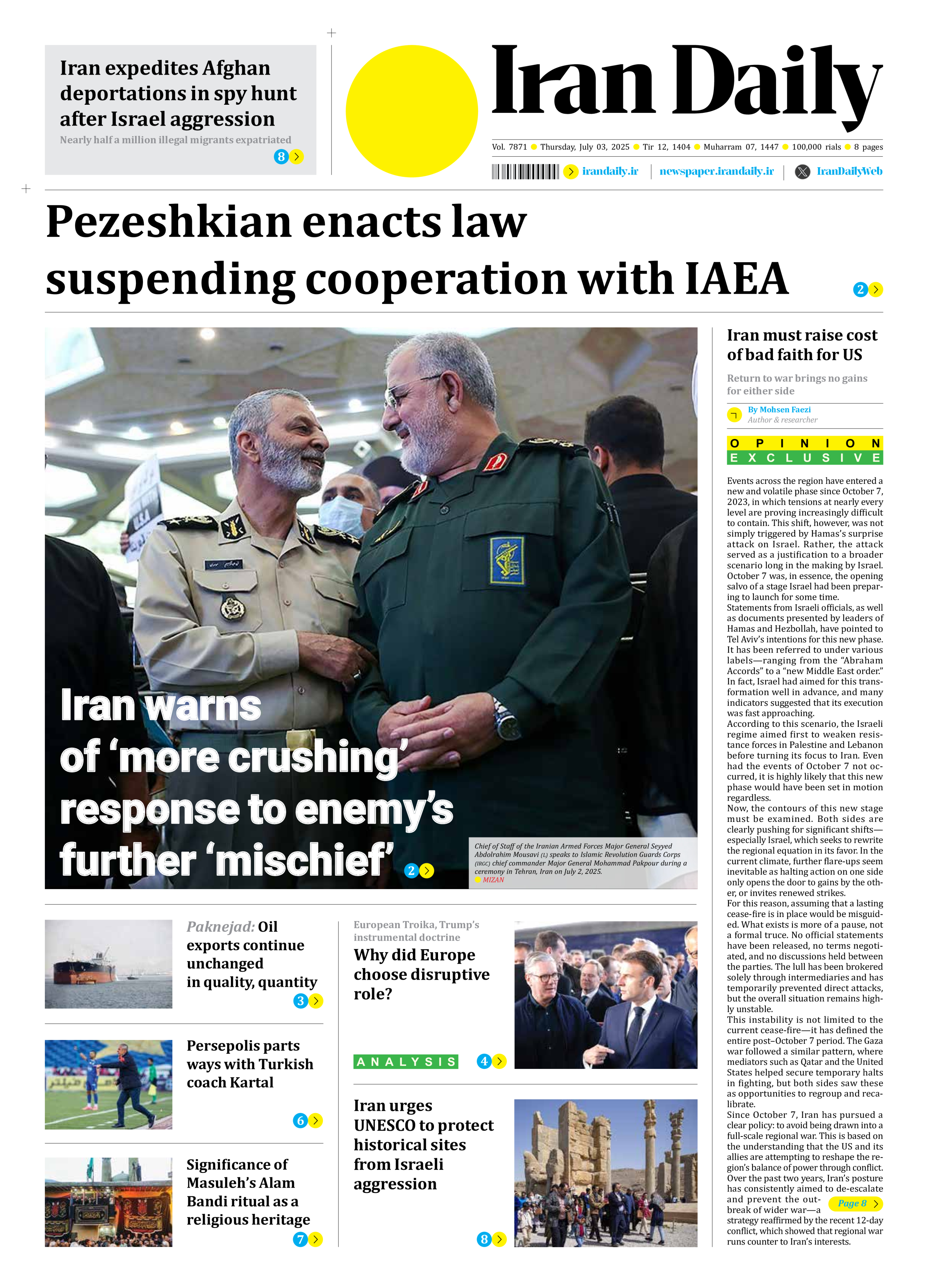
Iran must raise cost of bad faith for US
Return to war brings no gains for either side
By Mohsen Faezi
Author & researcher
Events across the region have entered a new and volatile phase since October 7, 2023, in which tensions at nearly every level are proving increasingly difficult to contain. This shift, however, was not simply triggered by Hamas’s surprise attack on Israel. Rather, the attack served as a justification to a broader scenario long in the making by Israel. October 7 was, in essence, the opening salvo of a stage Israel had been preparing to launch for some time.
Statements from Israeli officials, as well as documents presented by leaders of Hamas and Hezbollah, have pointed to Tel Aviv’s intentions for this new phase. It has been referred to under various labels—ranging from the “Abraham Accords” to a “new Middle East order.” In fact, Israel had aimed for this transformation well in advance, and many indicators suggested that its execution was fast approaching.
According to this scenario, the Israeli regime aimed first to weaken resistance forces in Palestine and Lebanon before turning its focus to Iran. Even had the events of October 7 not occurred, it is highly likely that this new phase would have been set in motion regardless.
Now, the contours of this new stage must be examined. Both sides are clearly pushing for significant shifts—especially Israel, which seeks to rewrite the regional equation in its favor. In the current climate, further flare-ups seem inevitable as halting action on one side only opens the door to gains by the other, or invites renewed strikes.
For this reason, assuming that a lasting cease-fire is in place would be misguided. What exists is more of a pause, not a formal truce. No official statements have been released, no terms negotiated, and no discussions held between the parties. The lull has been brokered solely through intermediaries and has temporarily prevented direct attacks, but the overall situation remains highly unstable.
This instability is not limited to the current cease-fire—it has defined the entire post–October 7 period. The Gaza war followed a similar pattern, where mediators such as Qatar and the United States helped secure temporary halts in fighting, but both sides saw these as opportunities to regroup and recalibrate.
Since October 7, Iran has pursued a clear policy: to avoid being drawn into a full-scale regional war. This is based on the understanding that the US and its allies are attempting to reshape the region’s balance of power through conflict. Over the past two years, Iran’s posture has consistently aimed to de-escalate and prevent the outbreak of wider war—a strategy reaffirmed by the recent 12-day conflict, which showed that regional war runs counter to Iran’s interests
Page 8.







